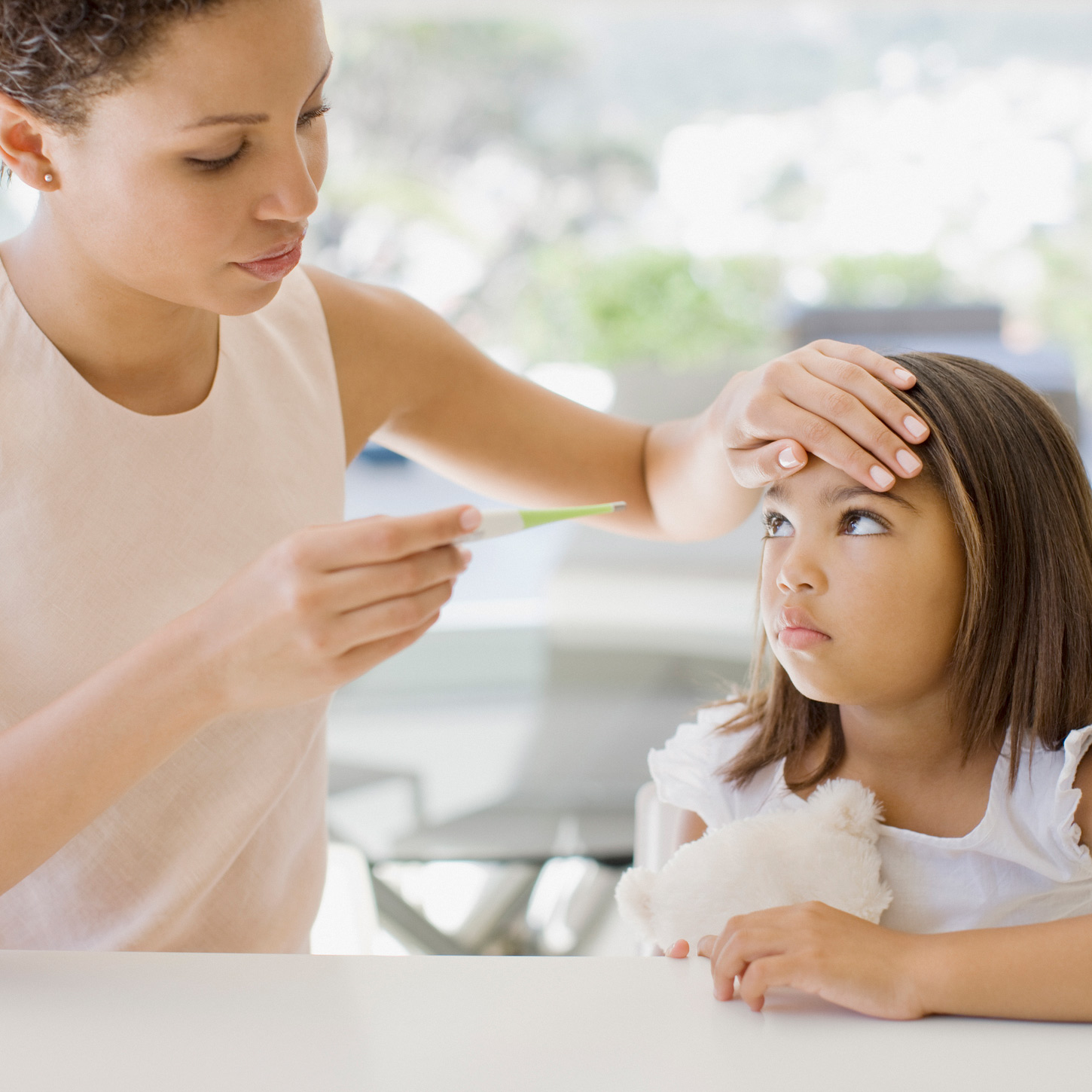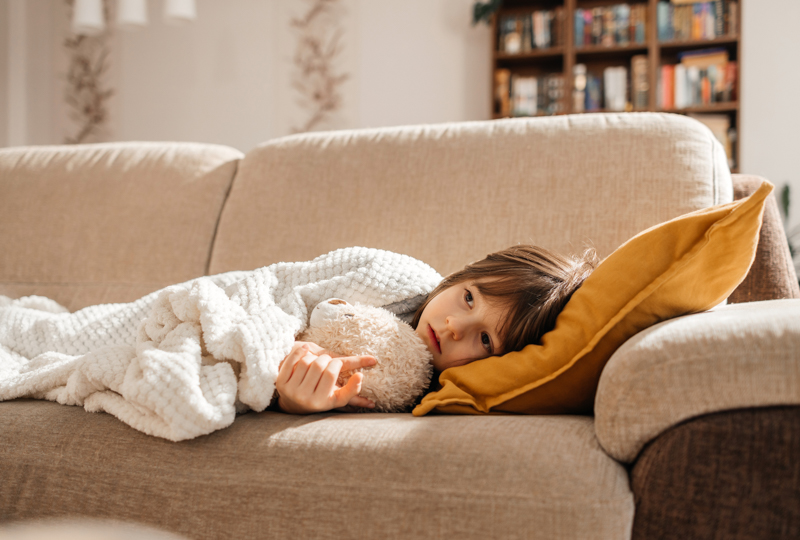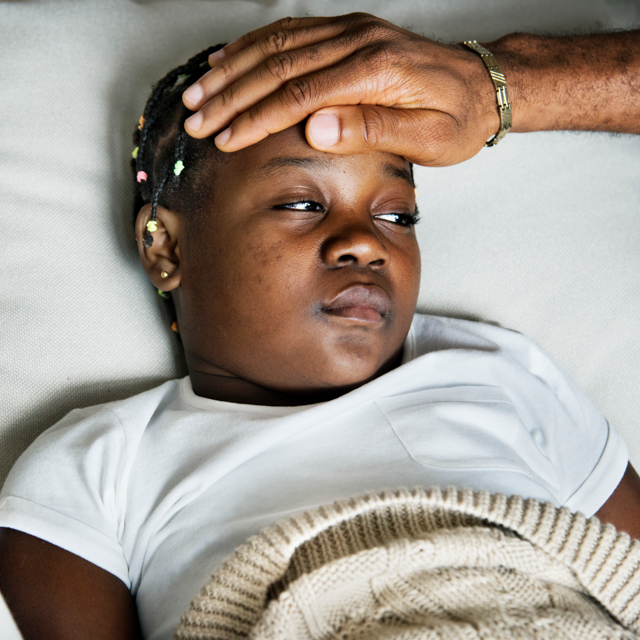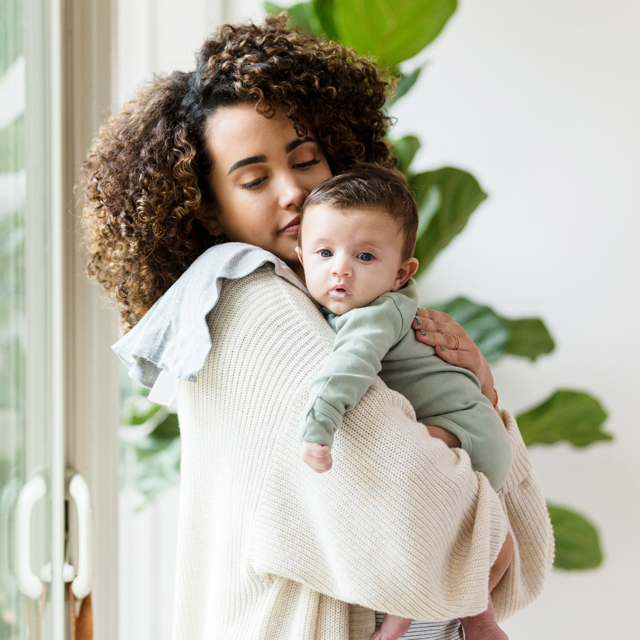How to identify, manage and prevent gastrointestinal illness in kids.
The stomach bug — it’s every parent’s dreaded visitor. One moment your child is happily playing, and the next, they’re sidelined with an upset stomach, vomiting or diarrhea. So, what’s a parent to do? We’ve got you covered with insights from Dr. Kelsey Savage, a pediatrician with Monroe Carell Jr. Children’s Hospital at Vanderbilt, on how to identify, manage and prevent stomach bugs in kids.
What causes stomach bugs?
Most stomach bugs in children are caused by viruses, with norovirus being the leading culprit, particularly in young kids.
“Occasionally, older children might pick up bacterial or parasitic infections, but in this country, viral causes are the most common,” Savage said.
A sudden onset of vomiting and/or diarrhea is a hallmark of a stomach bug. Mild belly pain and fever can also be present with the stomach bug, but not always. If your child has cold- or flu-like symptoms (coughing, sneezing, body aches, sore throat, etc.), the cause is not a stomach bug. Young children in particular can experience vomiting and diarrhea with respiratory illnesses.
How long will symptoms last?
The good news is that most stomach bugs typically run their course in less than a week and sometimes in as little as 24 hours. However, it’s not uncommon for diarrhea to linger.
“It can actually take a couple of weeks for stools to fully normalize after a stomach bug,” Savage said. “But active symptoms shouldn’t last more than a week. If things don’t improve by the seven-day mark, contact your child’s provider.”
How can I prevent my child from catching a stomach bug?
Because stomach bugs are most often the result of viral infections, prevention begins with proper hygiene.
- Handwashing is key. “Handwashing with soap and water is the gold standard,” Savage said. Alcohol-based sanitizers won’t kill norovirus, which means soap and water is the way to go.
- Sanitize correctly. Use a diluted bleach solution rather than alcohol-based cleaners to disinfect surfaces, particularly after diaper changes.
- Minimize exposure. While avoiding all germs at daycare or school isn’t realistic, reinforcing good handwashing habits at home can help reduce the spread.
How to get rid of stomach bug
Unfortunately, there’s no quick fix once your child becomes sick with the stomach bug.
“You just have to wait it out,” Savage said. But there are steps you can take to manage symptoms and keep your child comfortable:
- Hydration is essential. Keep your child hydrated with water, Pedialyte or other electrolyte solutions. Avoid sugary drinks like juice or sports drinks, which can worsen diarrhea.
- Monitor for dehydration. Signs of dehydration include fewer than three wet diapers in 24 hours, dry mouth, lack of tears when crying or a rapid heartbeat. If you notice any of these signs, consult your pediatrician immediately.
- Watch the diet. Stick to bland foods if your child feels like eating. While the classic BRAT diet (bananas, rice, applesauce, toast) works for some, Savage said it’s fine to give your child other foods if they want them, as long as they’re low in fat and sugar.
What about medicine?
While parents may be tempted to use anti-diarrheal medicines, Savage cautions against them.
“They can sometimes make children sicker, especially if a bacterial or parasitic infection is involved,” she said. “Always have your child evaluated before giving them an anti-diarrheal.”
Anti-nausea medication, however, is another story.
“For kids that have a ton of vomiting, and can’t even keep water down, odansetron (also known as Zofran) is a great option,” Savage said. “We can prescribe that if it will help a child stay hydrated.”
When to call a pediatrician
Most cases of the stomach bug can be managed at home. However, certain symptoms warrant medical attention. Seek care if:
- Diarrhea lasts more than a week.
- You see blood or mucus in the stool.
- Your child shows signs of dehydration.

Care After Hours
Vanderbilt’s Children’s After-Hours Clinics offer the convenience of a walk-in clinic with care provided by a board-certified pediatrician from Monroe Carell Jr. Children’s Hospital at Vanderbilt. These clinics offer urgent care for non-life-threatening illnesses or injuries in children of all ages. No appointment is necessary, but calling your pediatrician first is recommended.




